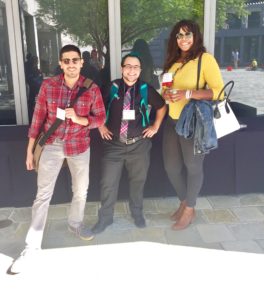
(L-R) Students Carlos Gonzales, Aiden Hirshfield, and Tunisha Singlton at Digital Hollywood
Content. Content. Content. That was the running theme last week at the Digital Hollywood conference in Los Angeles, where Media Psychology faculty, students, and alumni convened to immerse themselves in immersive media.
Software developers, startups, venture capitalists, entertainment producers, and industry leaders alike all gathered over the course of four days to hear panelists all preaching the need for smart content and audience engagement in the age of advanced media. Emerging technologies like virtual reality and augmented reality are gaining momentum.
But how do you create content using immersive technology that is sustainable enough to build retention and not rejection? The Media Psychology team was there to deliver solutions and leave a lasting impression on attendees.
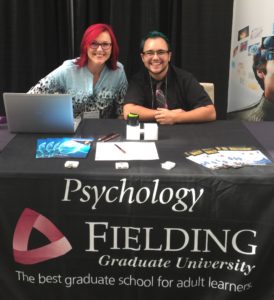
Staff member Starshine Roshell and student Aiden Hirshfield
First-time speaker Aunna Bollman, a PhD student in the program, believes it all begins with empathy. “Empathy is about feeling like you’re in someone else’s shoes—experiencing another’s condition through their perspective,” she said. “It’s just a natural progression and result of virtual experiences and this concept of presence.”
Alumni and adjunct faculty Dr. Shane Pase, director of consulting partnerships at Reality Science, spoke on the language and aesthetics of virtual reality, emphasizing the need to take a step back and understand what the concepts actually mean in the context of immersive technology. “Know what perception is. Know what immersion is. Know what presence is,” he said. “Learn what those terms exactly mean because if you can do that, then you can sell what you’re doing to studio executives.”
Virtual reality is the gateway to enable new experiences, perspectives, and capabilities. And once content creators dive into the emotional principles of design strategy, the experience can be about the emotionally binding content, not just the technology.
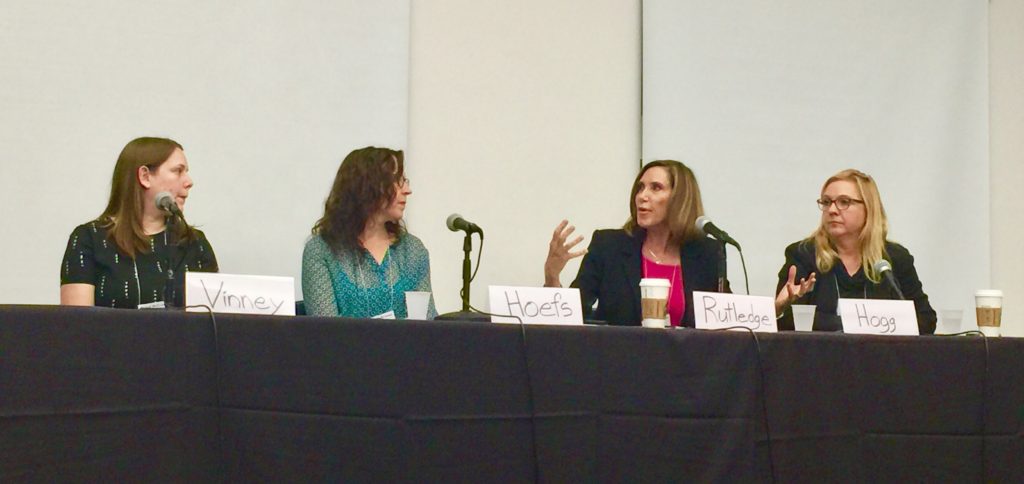
(L-R) Alumni Cynthia Vinney and Lara Hoefs with faculty members Dr. Pamela Rutledge and Dr. Jerri Lynn Hogg
Dr. Pamela Rutledge, Fielding faculty and director of the Media Psychology Research Center, presented on a panel titled “The Psychology of Audience Engagement: Balancing Fan Desires and Producer Vision in the Age of Entitlement.” To Dr. Rutledge, understanding the drivers of human behavior will tap into the audience’s needs and help grow the subculture of early adopters. “We have to be aware of the psychological responses that change with each technology and platform, and how that influences meaning, narrative, and experience” she said. “For widespread adoption, virtual reality needs to be social rather than isolating.”

(L-R) Linda Durnell, Aunna Bollman, Tunisha Singleton
Outside of presenting, the Media Psychology program hosted a cluster event and allowed students to experience rubbing elbows with some of the industry’s top leaders. “It was a great opportunity to network, teach, meet up with new and potential students and participate in cutting edge technology,” said Ph.D. student Linda Durnell. “It was great to be a part of this event!”
Join Over 7,500 Fielding Alumni Located Around The World!
Change the world. Start with yours.™
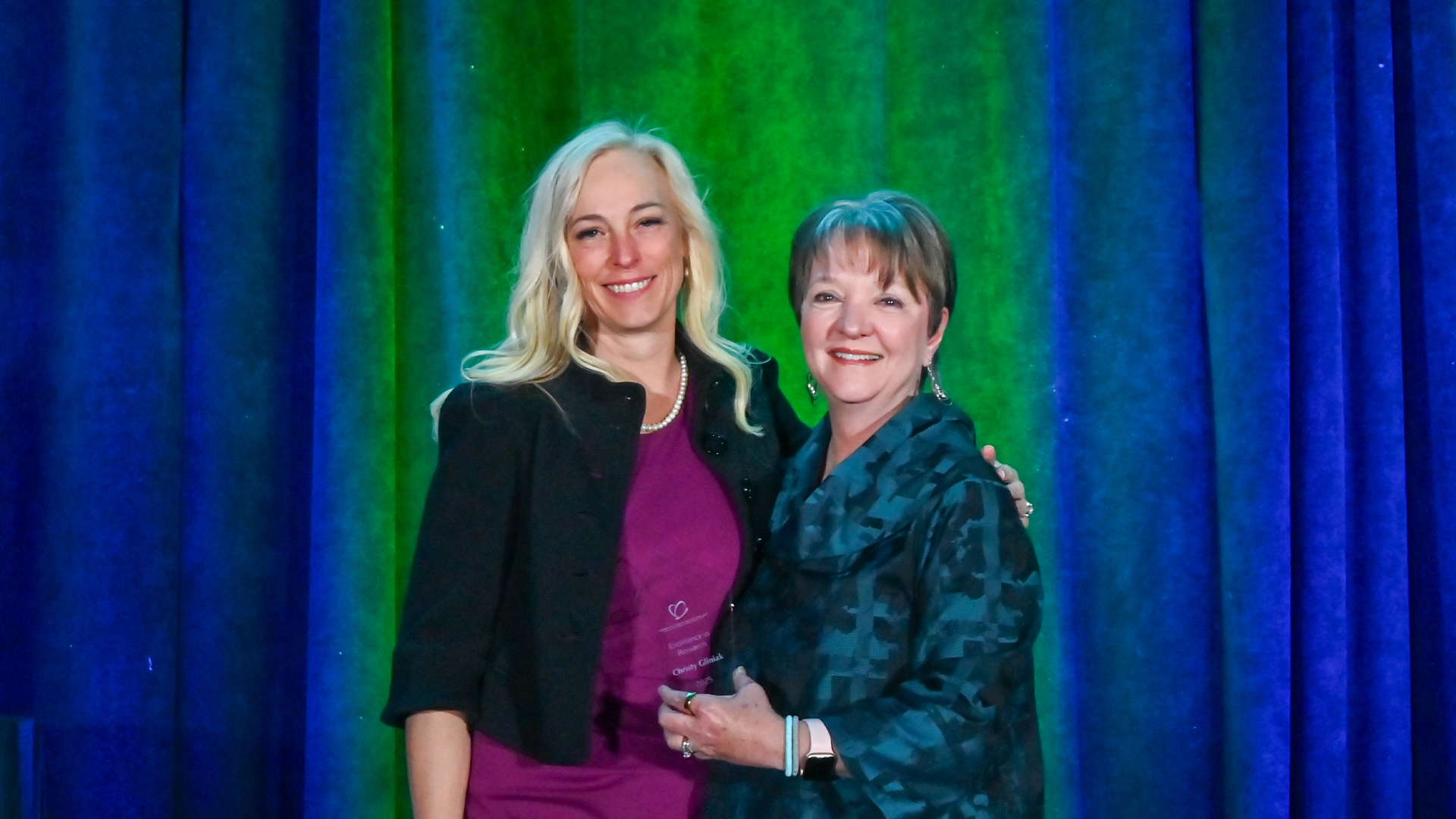
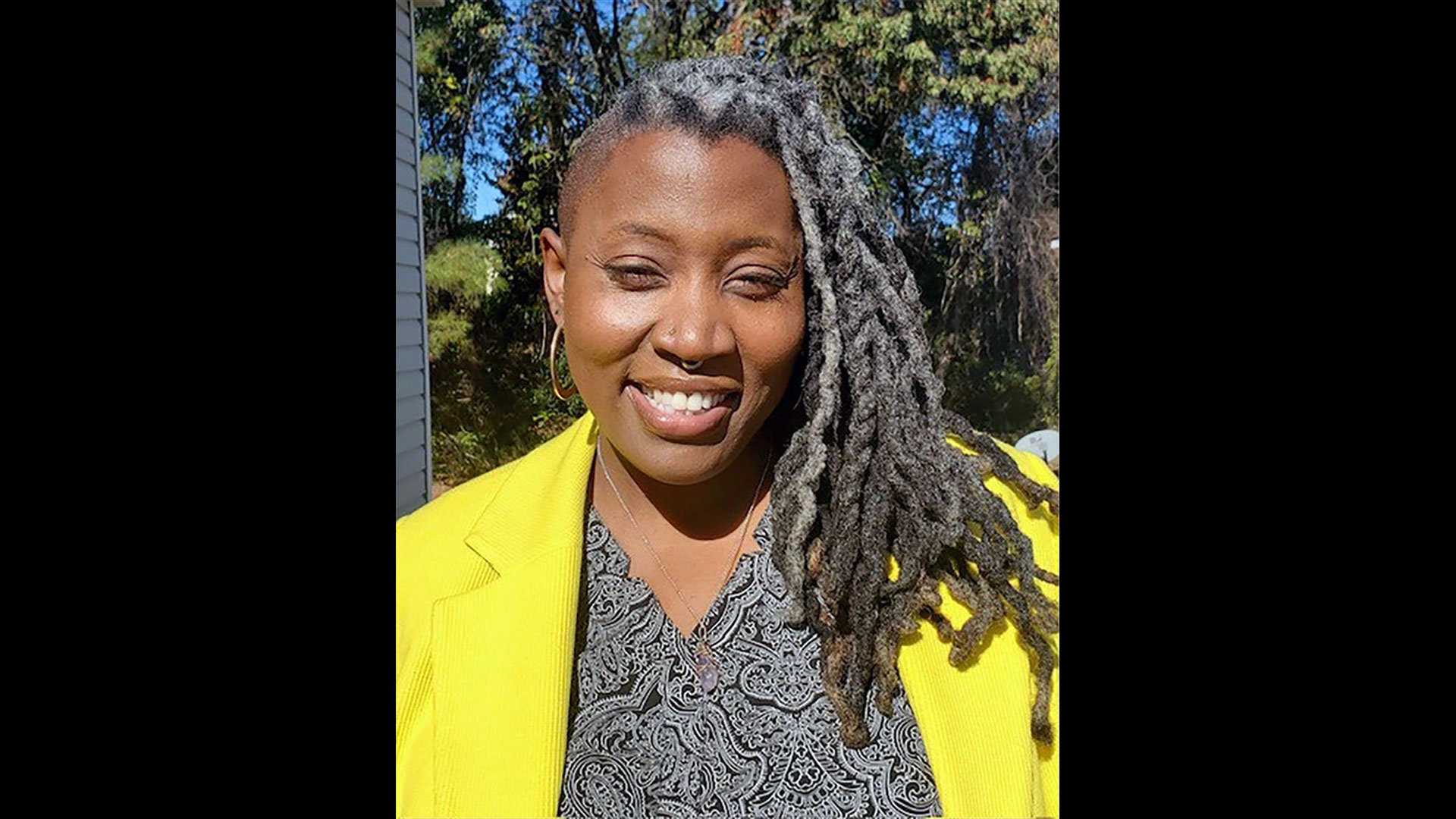




Get Social